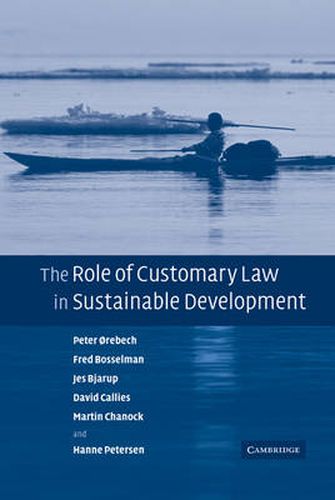Readings Newsletter
Become a Readings Member to make your shopping experience even easier.
Sign in or sign up for free!
You’re not far away from qualifying for FREE standard shipping within Australia
You’ve qualified for FREE standard shipping within Australia
The cart is loading…






For many nations, a key challenge is how to achieve sustainable development without a return to centralized planning. Using case studies from Greenland, Hawaii and northern Norway, this 2006 book examines whether ‘bottom-up’ systems such as customary law can play a critical role in achieving viable systems for managing natural resources. Customary law consists of underlying social norms that may become the acknowledged law of the land. The key to determining whether a custom constitutes customary law is whether the public acts as if the observance of the custom is legally obligated. While the use of customary law does not always produce sustainability, the study of customary methods of resource management can produce valuable insights into methods of managing resources in a sustainable way.
$9.00 standard shipping within Australia
FREE standard shipping within Australia for orders over $100.00
Express & International shipping calculated at checkout
For many nations, a key challenge is how to achieve sustainable development without a return to centralized planning. Using case studies from Greenland, Hawaii and northern Norway, this 2006 book examines whether ‘bottom-up’ systems such as customary law can play a critical role in achieving viable systems for managing natural resources. Customary law consists of underlying social norms that may become the acknowledged law of the land. The key to determining whether a custom constitutes customary law is whether the public acts as if the observance of the custom is legally obligated. While the use of customary law does not always produce sustainability, the study of customary methods of resource management can produce valuable insights into methods of managing resources in a sustainable way.